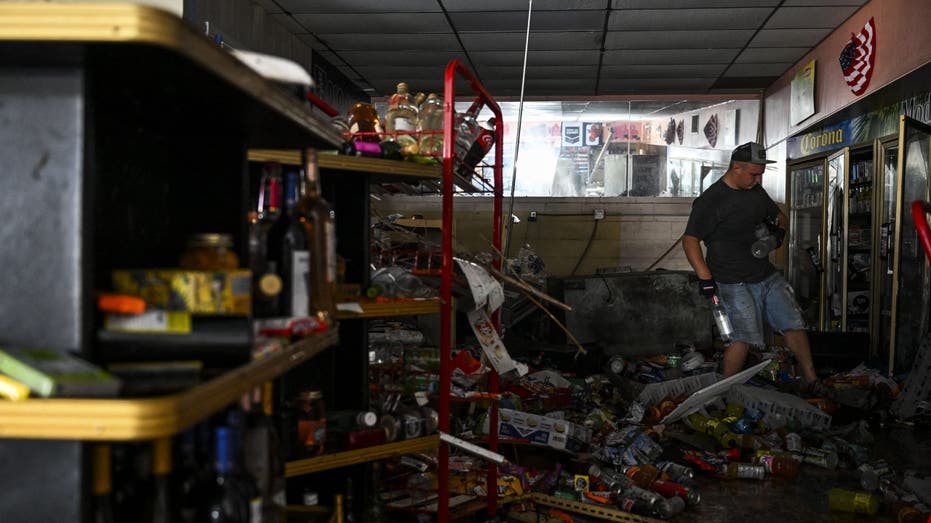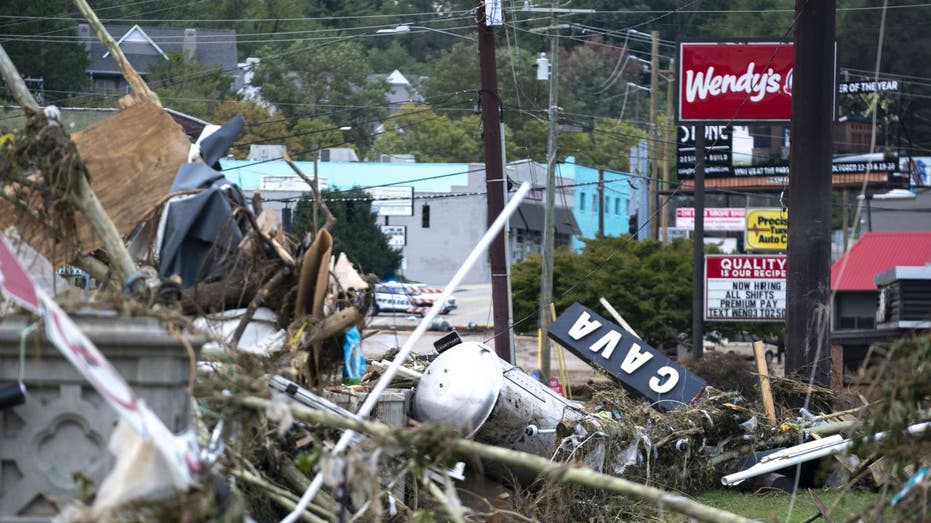The looming massive port strike expected to start at midnight Tuesday could have severe consequences on delivering emergency assistance to Hurricane Helene victims.
“We’ve got southeast United States, half of North Carolina, parts of Georgia, southern Virginia that are under water or under mud digging out,” American Trucking Associations President and CEO Chris Spear told FOX Business. “These people need help. And now we’re going to shut down 36 ports, all the commerce going in and out of this eastern half of the country, 46% of all agriculture is exported out of our east coast ports. This is not the time for a strike. This administration needs to get these parties to the table and get a deal.”
Spear, whose organization is moving over 72% of the nation’s freight by ton, slammed President Biden for saying he wouldn’t intervene to prevent the strike, saying that collective bargaining hasn’t happened since June. The International Longshoremen’s Association, the union that represents U.S. dockworkers, warned that 45,000 members could walk off their jobs at midnight, a massive work stop that could essentially shut down about 36 ports on the East and Gulf coasts that handle about half of the goods shipped into and out of the country.
HURRICANE HELENE DEVASTATION COULD COST UP TO $34B, MOODY’S SAYS
The union has ripped the United States Maritime Alliance for not coming to an agreement on a wage package before the contract deadline. But the strike comes days after Hurricane Helene pounded the southeastern U.S. with high winds and heavy rainfall, causing massive flooding and killing as many as 120 people. Hundreds remain unaccounted for as communications are down.
“This is in line with what I’ve been saying, which is that these are people who are going to need to be purchasing new goods, rebuilding, rebuilding, buying new cars. And also there is the issue of employment opportunities,” Chloe Demrovsky, executive in residence at NYU SPS Center for Global Affairs and Member of the FEMA National Advisory Council, told Fox News Digital.
“So if this leads to people being furloughed or laid off or store closures, that’s going to create a problem where people are already financially strained in so many ways,” she said of the strike. “If they don’t have the ability to earn money, to recover their lives, rebuild their lives, that creates a major problem, and especially if we have problems with American exports that could impact the labor market in agriculture and other key sectors. And so that would certainly include our ability to recover effectively.”
“This would put us into a poly crisis mode,” Demrovsky said of the looming strike. “We’re already in active activation. It’s going to be a very busy hurricane season. Helene is going to be very expensive, with major declarations across multiple states. And this would very much impact the ability to recover, because this is about finished goods.”
She expected potentially higher prices for hurricane victims needing to rebuild their homes or rebuy essential goods or even vehicles, noting that the companies that import the most in the ports expected to be impacted by the strike are Walmart, IKEA, Home Depot, Dollar General, among many others in automotive, including Hyundai.

PORTS STRIKE NOT COMING AT A GOOD TIME, PUTS ECONOMY AT RISK: JOE LAVORGNA
“If you have evacuated with only a toothbrush, you need to rebuy all of these goods. So if you’re going to, you know all of these places that I just mentioned, and everybody’s going, then we’re likely to see empty shelves over time, higher prices,” Demrovsky said. “We’ve just started to get a handle on inflation. That’s likely to go back up in the event of a port strike, on top of an active response across so many states in such a wide area.”
She noted residents in areas of North Carolina and Tennessee that experienced more inland flooding from Hurricane Helene are likely not as used to stocking up for a hurricane as are people impacted in Florida or other coast areas, so those victims would be more likely to have to go out and buy goods immediately, causing an added strain on supply chains.

While Walmart is already a major leader in hurricane response and will have to redirect shipments away from stores that have experienced flooding, Demrovsky said the strike complicates their operations further. “The companies that I mentioned have very strong operational resilience plans and trainings, but when you’re in sort of a poly crisis or a perma crisis, it just gets that much harder to stay on top of it, and something’s got to give somewhere,” she said. “They’re already doing a lot of this in hurricane season, but to have this on top of it just makes it that much harder. So they’re going to have to do some really interesting dancing to make sure that they’re continuing to keep shelves at least reasonably well stocked.”
The collapse of the Francis Scott Key Bridge in Baltimore has already created a major strain on the automotive industry supply chain, given the Port of Baltimore is a major import area for automotive because of “its roll on, roll off port,” she said. That port has also not fully recovered from the COVID-19 pandemic and is facing added changes with the demand for electric vehicles.
“It’s just a very complex time for supply chains in the automotive industry in general. So this is just one more nail there, making it very difficult,” Demrovsky said.
Read the full article here











